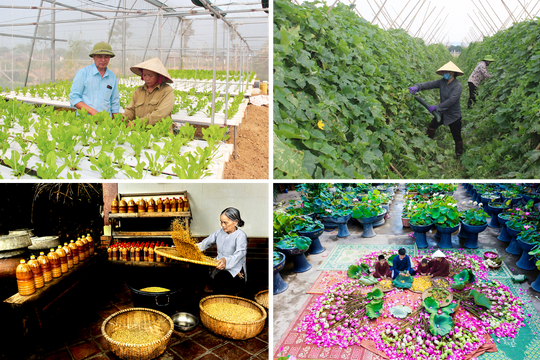Uncle Ho's Hometown - A place of gratitude and return
May comes like a sacred promise, bringing people from all over the country to Sen Village and Hoang Tru - rustic yet sacred places, places closely connected with the life of President Ho Chi Minh. The two words "Uncle Ho's Hometown" are both familiar and profound. This land once sheltered a great soul and personality; and today, it still silently nurtures the bond between generations, between peoples, between hearts, overcoming all boundaries to join in the flow of gratitude.
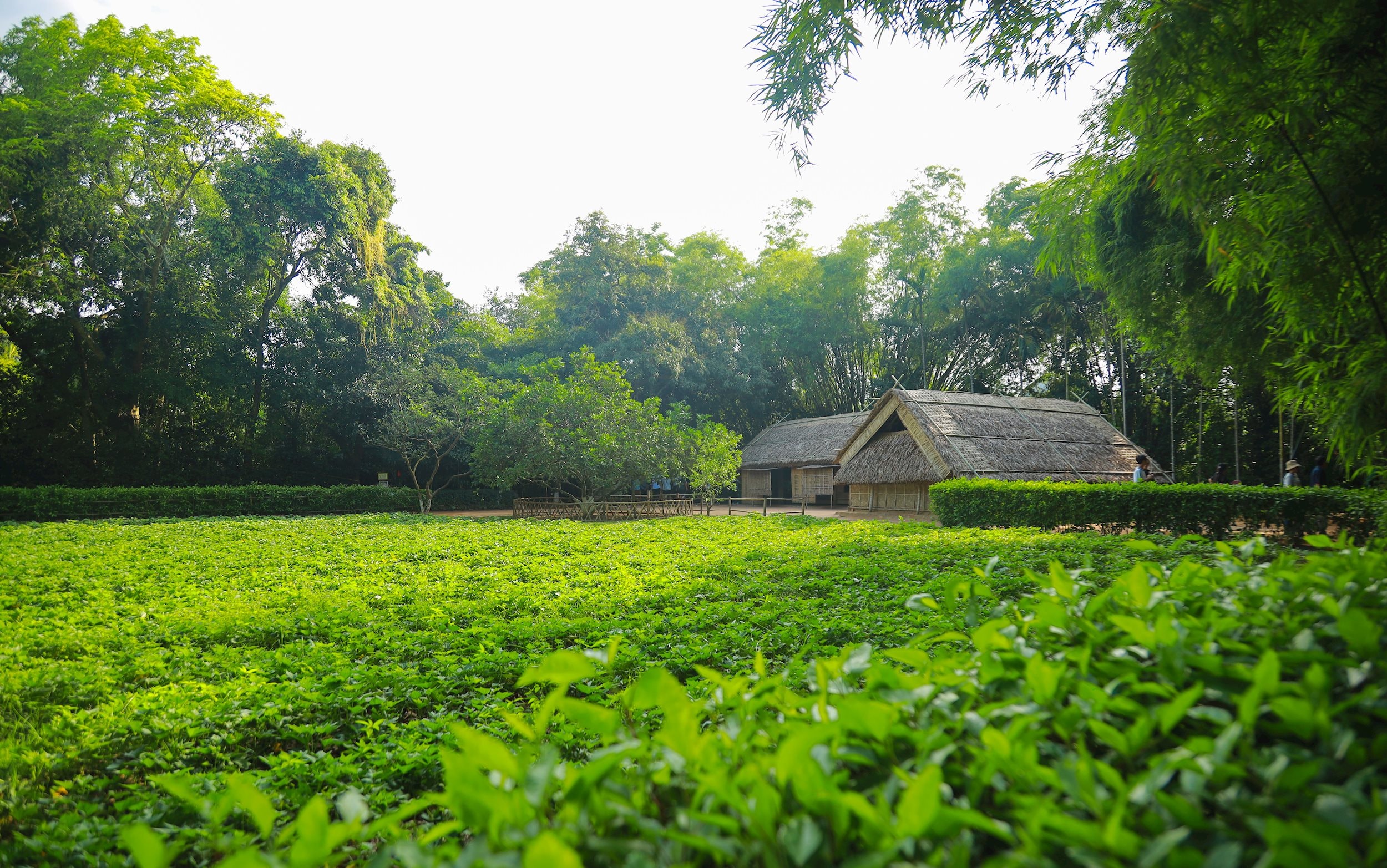
Sacred cultural source
On a May morning, director Ho Ngoc Xum (born in 1955) returned to Hoang Tru and Sen village, Uncle Ho's hometown. This trip was his own pilgrimage - a journey back to the source of emotions that helped him create touching films about him. From the emotions kindled on that sacred land, cinematic works deeply depicting his portrait and noble soul such as "The Moon of Childhood" and "The Painting of Love" were born one after another.
.jpg)
With “The Moon of Childhood”, he searches for Uncle Ho’s childhood through each simple roof, his mother’s lullaby beside the hammock, and his father’s warm voice reading Chinese characters under the oil lamp. The film deeply depicts the losses in Uncle Ho’s family, especially the passing of Mrs. Hoang Thi Loan, to bring a realistic and touching look at his turbulent but also loving childhood years.
Still in““The Painting of Love”, directed by Ho Ngoc Xum, tells the story of a monk who, after returning to secular life, quietly drew hundreds of portraits of Uncle Ho with an electric pen - as a way of expressing the artist's deep respect from the bottom of his heart for the beloved leader.
Both works were highly appreciated, contributing to the director Ho Ngoc Xum winning the Best Director award at the 2010 FICTS Film Festival; while the actor Nguyen Hung Cuong who played the main role was also honored as the Best Actor. Notably, the film "The Moon of Childhood" was honored to be selected by the Cinema Department to be screened during the film week celebrating the 135th birthday of President Ho Chi Minh in Nghe An.
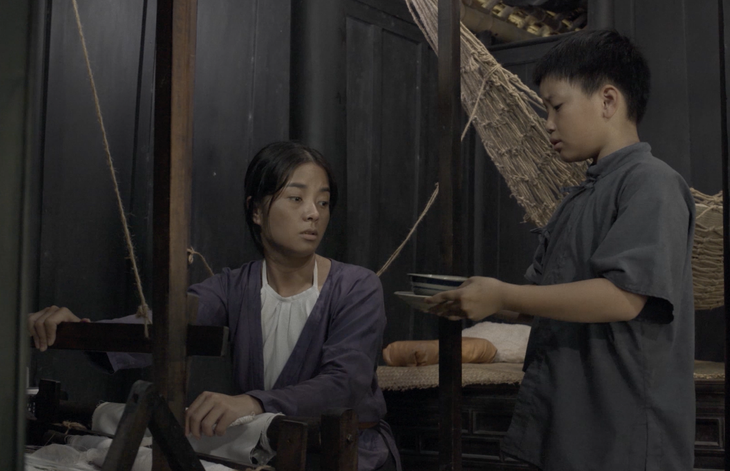
To get those genuine and touching footages, director Ho Ngoc Xum returned to Uncle Ho's hometown many times, listening to oral stories from the people.
To understand Uncle Ho, one must go to Hoang Tru - where he was born; one must visit Sen village - where his personality was formed.
To me, Hoang Tru is like a hard-working mother, and Sen village is like an exemplary father. Those two sources crystallize a Ho Chi Minh who is both great and imbued with the soul of his homeland.
Director Ho Ngoc Xum
Exactly 135 years since Uncle Ho was born, the thatched house in Hoang Tru village is still intact as ever. The small yard, the areca trees in front of the alley, the hibiscus fence, the green bamboo clumps… all seem to still retain the warmth of Uncle Ho. For the director from the Southwest region, that scene makes him feel strangely familiar, as if it belonged to his memory.
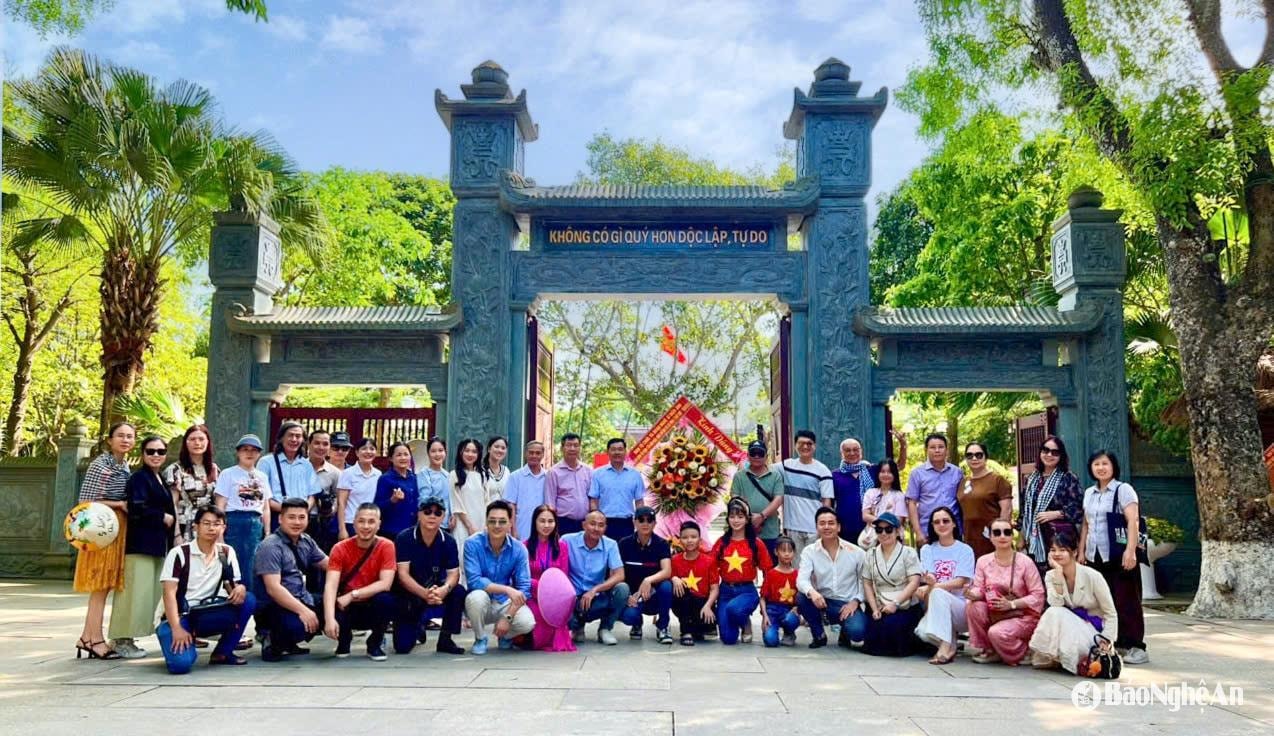
These days of May, the artists who played the role of Uncle Ho - People's Artist Bui Bai Binh (Prophet), artist Manh Truong (Thau Chin in Siam), artist Minh Duc (Looking out to sea) - also quietly returned, revisiting every corner where he lived. For them, Uncle Ho's hometown is not only a movie setting, but also a sacred memory area - a source of creative emotions, where every artist finds himself.
Full of solidarity
There is one special thing that can be clearly felt when standing in the quiet space of Sen village, or in the peaceful bamboo canopy of Hoang Tru - that is, here, all boundaries seem to not exist. No matter who they are, what their status or religion, everyone opens their hearts, puts aside their differences to be closer to each other.
As confided by Mr. Pham The Duyet (born in 1991, Lang Nam Parish, Xa Doai Deanery, Vinh Diocese): "When returning to Uncle Ho's hometown, the children of Xa Doai Deanery all remember the letter that Uncle Ho sent to the people of Xa Doai in August 1968.
In the letter, Uncle Ho wrote: “I was deeply moved when I heard that on July 21, American planes bombed and shelled Xa Doai, injuring two bishops and three priests; a number of monks and Catholic and non-Catholic people were injured and killed, churches were damaged, hundreds of houses were destroyed… I send my regards and comfort to the priests, monks and families of the victims. Catholic and non-Catholic people should unite closely, help each other and the local government should find ways to help the people solve the immediate difficulties to restore normal life and together strive to fight the Americans and save the country.”
.jpg)
Duyet confided: "For me, Uncle Ho's advice showed the deep, kind heart of a man who devoted his whole life to the country and the people. As a Catholic, I felt in Uncle Ho a great tolerance that transcended all boundaries of religion and status. Every time I return to Uncle Ho's hometown, I understand more deeply why he became a living symbol of the great solidarity of the entire people."
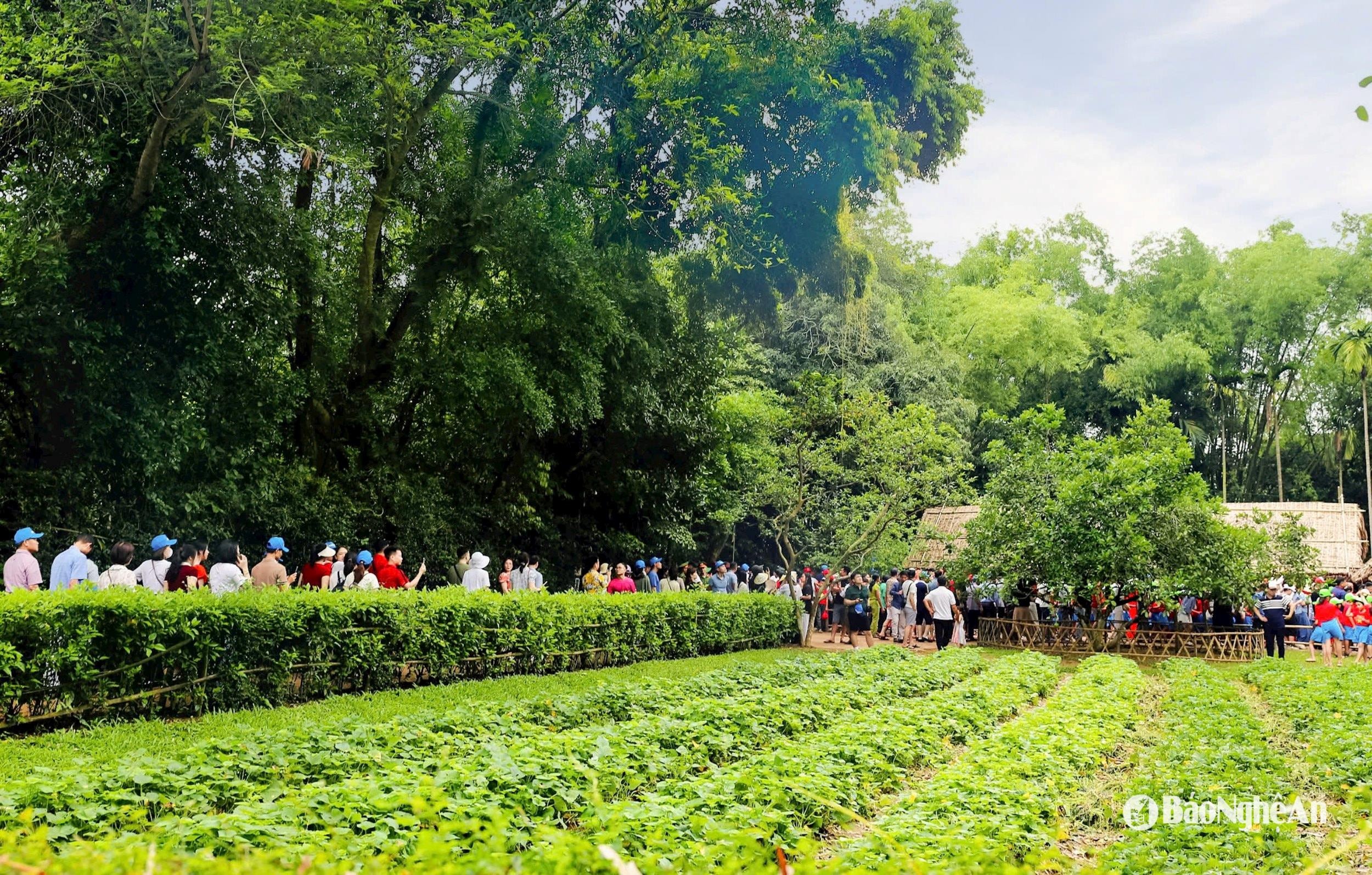
In addition to domestic tourists, Uncle Ho's hometown also welcomes many international guests. Although he was not able to come on Uncle Ho's birthday, comrade MonXay Laomuaxiong - Alternate Member of the Party Central Committee, Secretary of the Central Committee of the Lao People's Revolutionary Youth Union, and the Lao delegation also visited Uncle Ho's paternal and maternal hometowns in early 2025. Although he had visited Nghe An many times and respectfully offered flowers and incense to him, each time had its own special emotions.
.jpg)
During his conversation, comrade MonXay Laomuaxiong shared that President Ho Chi Minh was not only the leader of the Vietnamese people, but also a great friend and a spiritual support in the loyal relationship between Vietnam and Laos. Uncle Ho's hometown has always been a great symbol of the strength of solidarity, compassion and love.
It was here that once sheltered and nurtured a great soul. And today, it continues to silently nurture the bonds between generations, between nations, and hearts that transcend all geographical distances to join in the flow of gratitude.
Comrade MonXay Laomuaxiong - Alternate Member of the Party Central Committee, Secretary of the Central Committee of the Lao People's Revolutionary Youth Union
New vitality on "Common Homeland"
Mr. Le Xuan Chung - Head of the General Administration Department of Kim Lien National Special Relic Site, said that according to statistics from the registration list of the relic site, from May 10 to May 19, this place welcomed more than 63,000 visitors. In addition to nearly 4,500 domestic tourist groups, the relic site also had nearly 20 foreign tourist groups from Laos, Thailand, India, China, France... This number of visitors is estimated to be twice as high as the same period last year. This shows that the attraction and position of Kim Lien land is increasingly spreading in the hearts of tourists and international friends.
.jpg)
There is one special thing, visitors to Uncle Ho's hometown are not only moved by the rustic and simple scenery that was associated with his childhood, but also feel happy and proud when witnessing the daily changes on this land... Just recently, Deputy Prime Minister Tran Hong Ha signed Decision No. 921/QD-TTg dated May 14, 2025, recognizing Nam Dan district, Nghe An province to meet advanced new rural standards in 2024.
Imbued with Uncle Ho's teachings, the Party Committee, government and people in Nam Dan have united and unanimously completed 9/9 criteria according to the set of criteria for advanced new rural districts in the period 2021-2025. Along with that, the average income per capita reached 67 million VND/year, the poverty rate decreased sharply, creating a solid foundation for sustainable development.
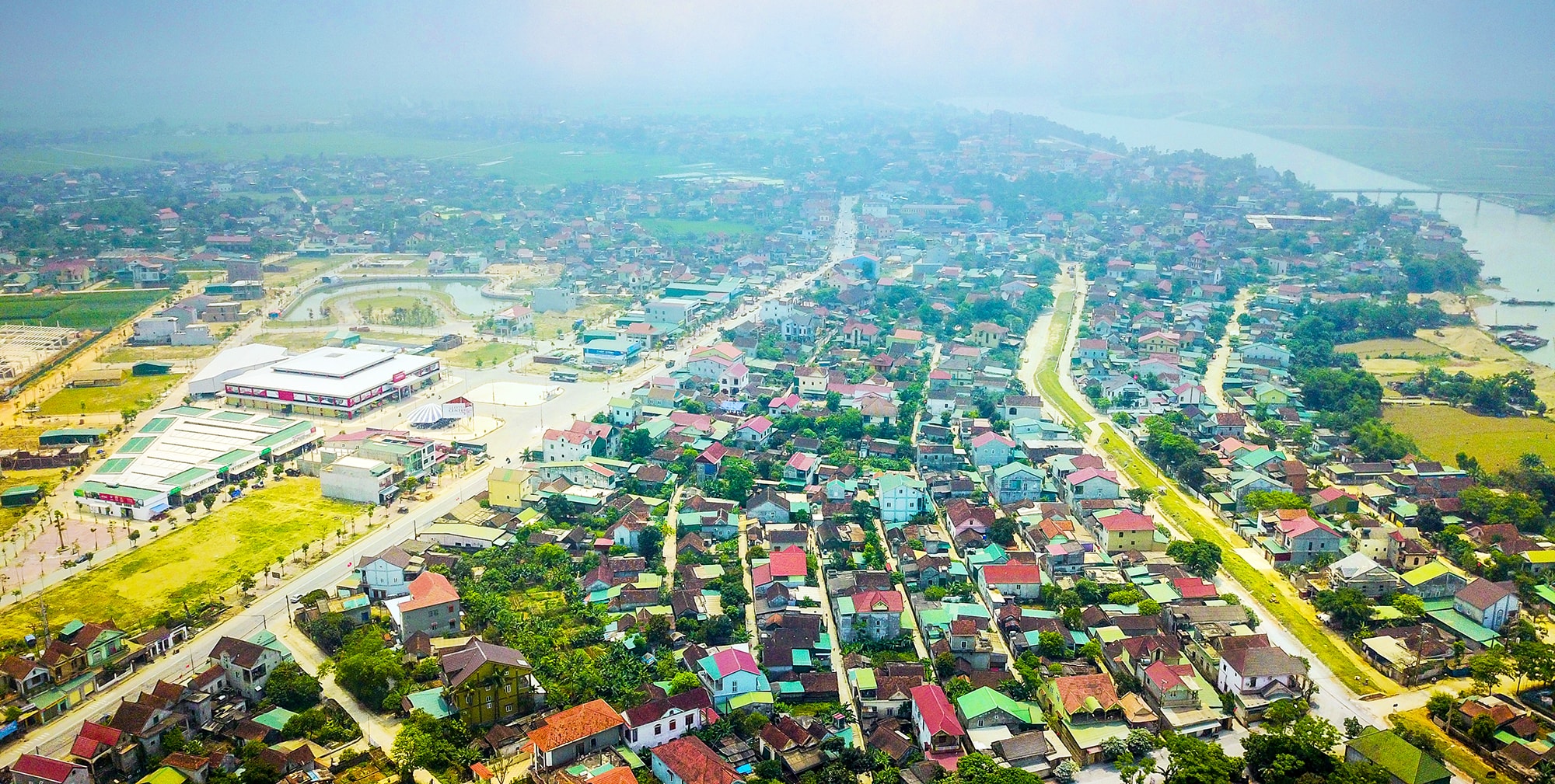
In particular, the lotus tree – a long-standing symbol of this land – is now not only a cultural image, but also a foundation for economic development. With more than 60 hectares of lotus cultivation and a series of typical lotus products such as tea, dried lotus seeds, scented tea... the locality has 15 OCOP products, of which 11 products meet 3 to 4 star standards.
Lotus fields today not only spread the spirit of the countryside, but also open up a sustainable direction for agriculture associated with experiential and ecological tourism. Nam Dan - a land rich in tradition is affirming its new role and position in the development flow of the country.
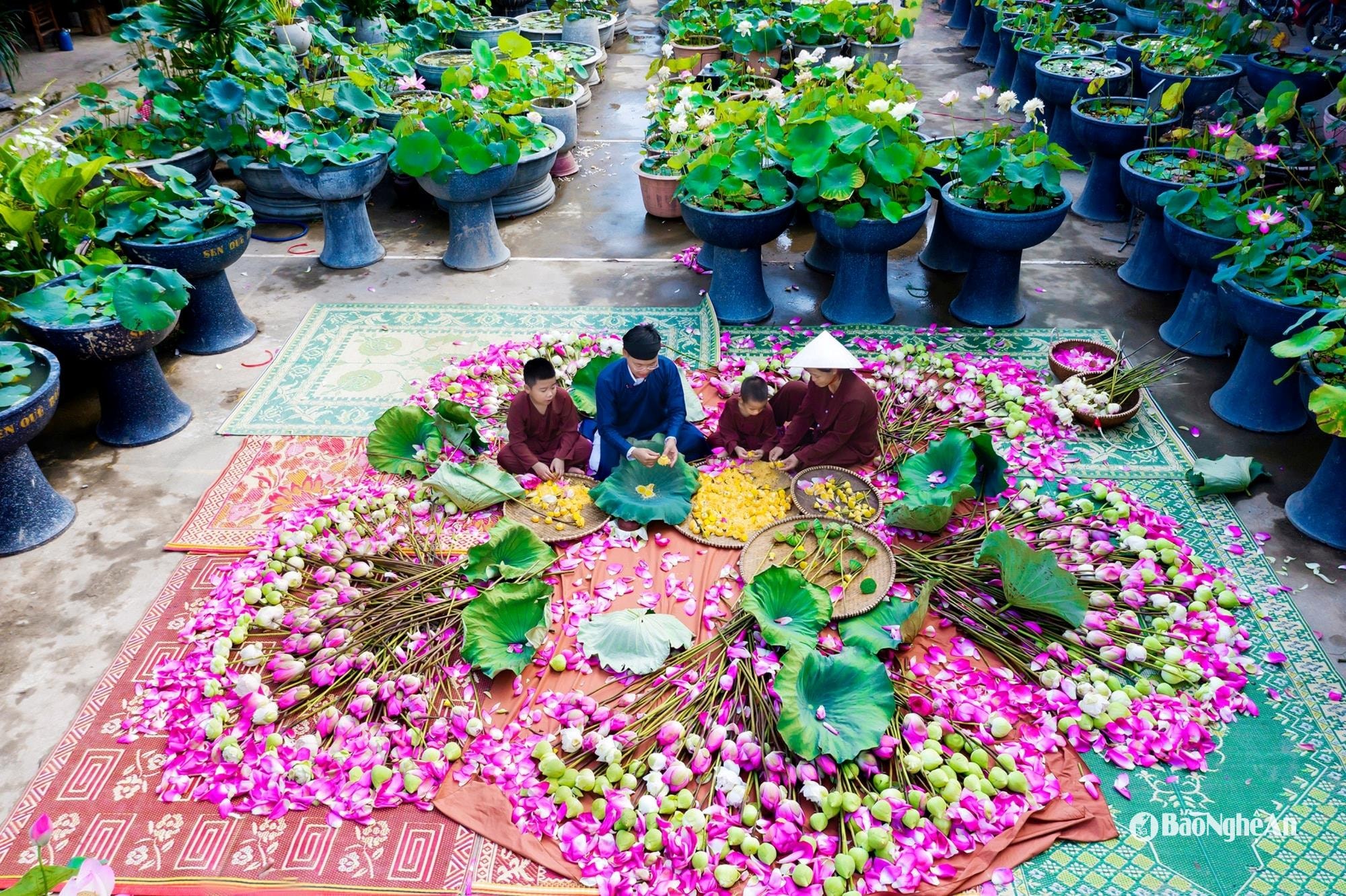
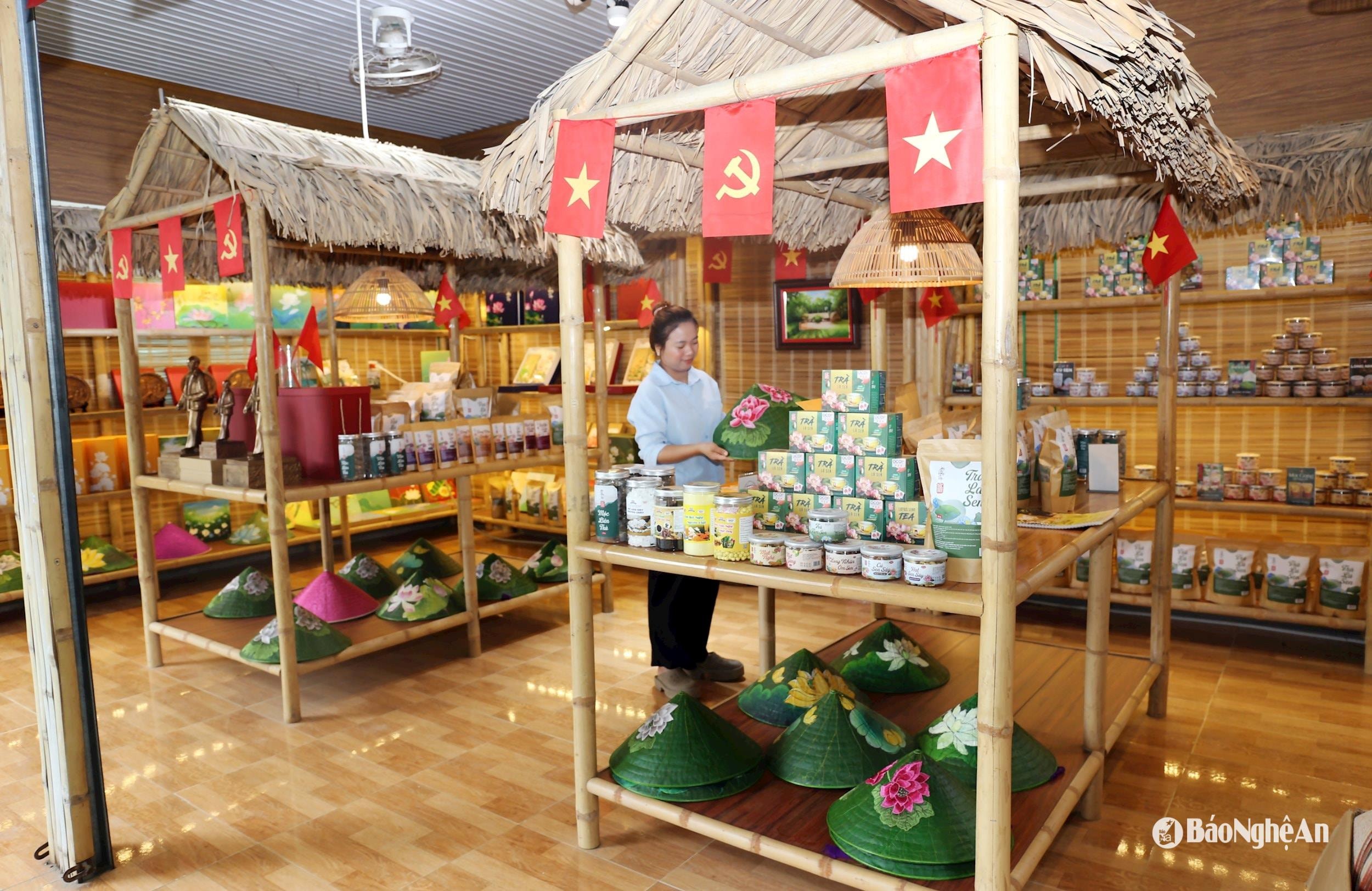
Entering the historic May days, the lotus flowers of Uncle Ho's hometown bloomed together as if to welcome the flow of people returning from all directions. The lotus rose from hardships just like the people here rose from hardships to write a new journey - a journey of change, integration and development./.

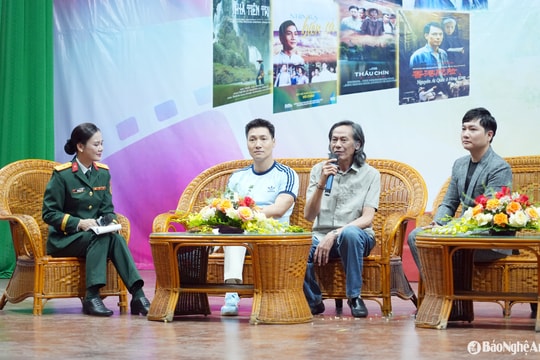
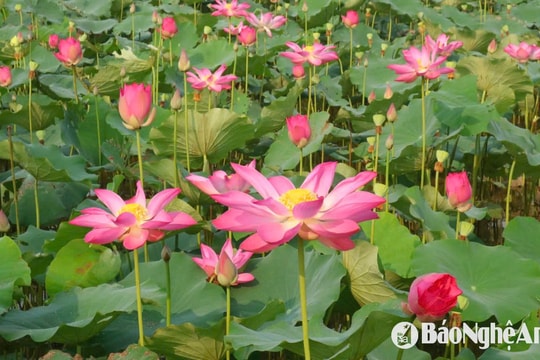
-b58e31904bc996a34992c807423402de.jpg)
